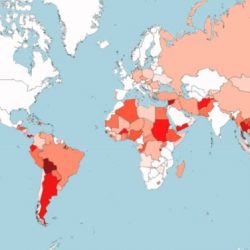Military coups have increased over the last year and a half. What is driving this challenge to democracy? How concerned should we be? Regional organizations and powerful states have sometimes played important roles in averting takeovers by military coups. How successful have they been? How can they improve? [ dur: 58mins. ]
- Fabrice Lehoucq is Professor in the Department of Political Science at the University of North Carolina, Greensboro. He is the author of Breaking out of the Coup Trap: Political Competition and Military Coups in Latin America (with Aníbal Pérez-Liñán) and Political Institutions, Instability, and Democratic Performance in Latin America: A Research Agenda.
- Joseph Wright is Professor in the Department of Political Science at Pennsylvania State University and the co-Director of its Global and International Studies (GLIS) program. He is the co-author of How Dictatorships Work (with Barbara Geddes and Erica Frantz) and the forthcoming Historical Dictionary of Modern Coups d’etat (with John Chin and David Carter).
- Jonathan Powell is Associate Professor at the School of Politics, Security, and International Affairs at the University of Central Florida. He is the co-author of Of Strong Men and Straw Men: Appraising Post-Coup Political Developments, Investing in Stability: Economic Interdependence, the Capitalist Peace, and Coups d’état and, with Clayton Thyne, Global Instances of Coups from 1950 to 2010: A New Dataset.
- Clayton Thyne is Department Chair and a Professor in the Political Science department at the University of Kentucky. He is the co-author of Democratic Versus Authoritarian Coups: The Influence of External Actor on State’s Post Coup Political Trajectories and, with Jonathan Powell, Global Instances of Coups from 1950 to 2010: A New Dataset.
This program is produced by Maria Armoudian, Doug Becker, Ankine Aghassian, Melissa Chiprin and Sudd Dongre.
Podcast: Play in new window | Download (Duration: 58:01 — 53.1MB) | Embed
Subscribe: Apple Podcasts | Spotify | RSS
